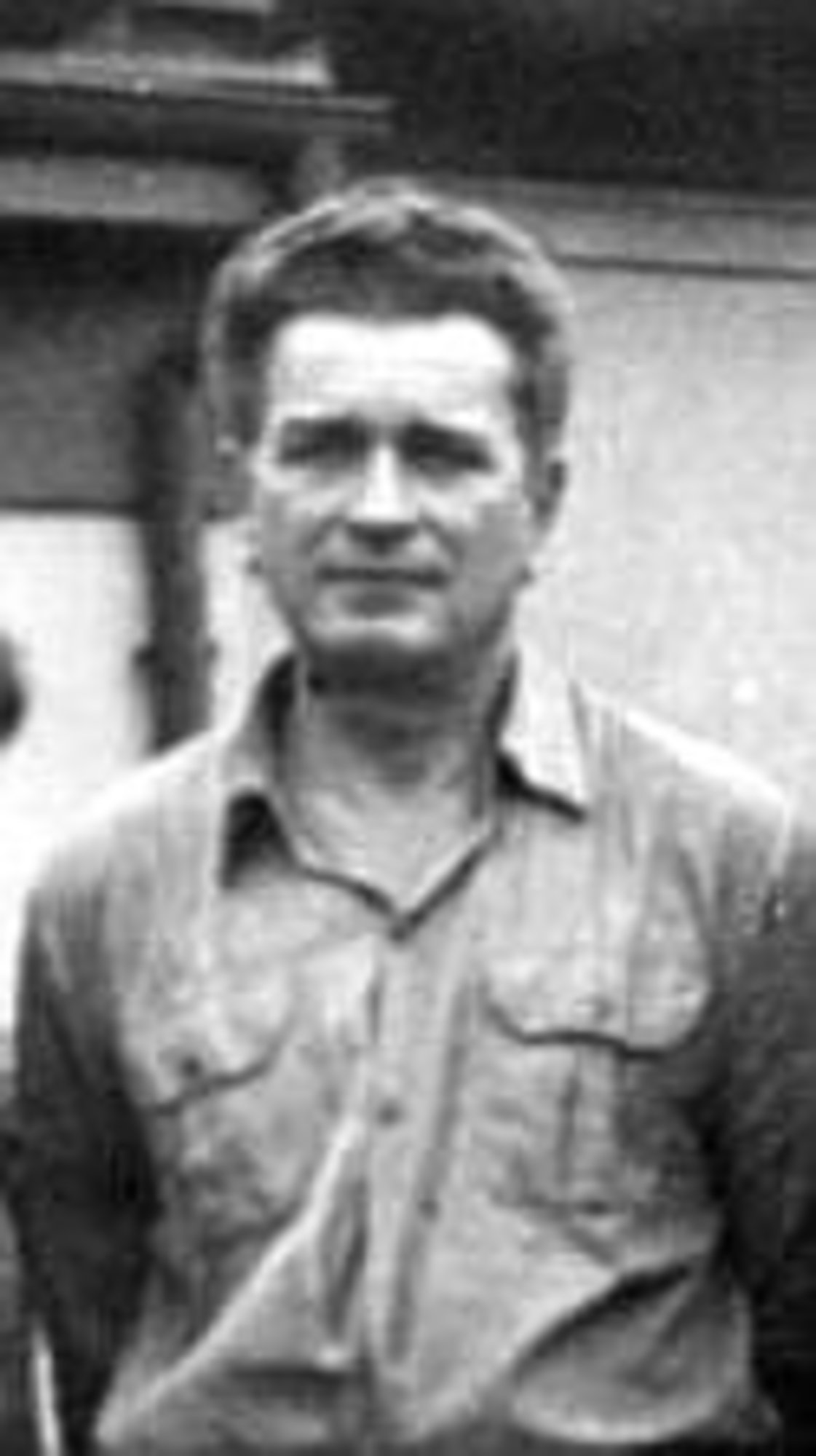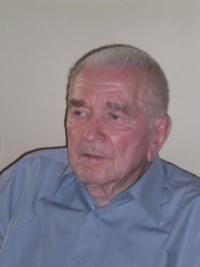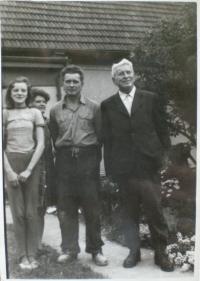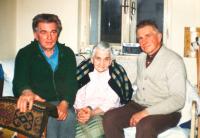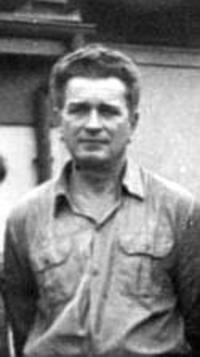“So, when I got then already from the ´Sing Sing´, as we called it, to the common cells, where we were up to fifty. Naturally it was terrible when there was just one toilet in the corner and there were 60 people in one cell and little food and everything and the norms there and so on. And such buggering that they searched one even if he was coming from the workshop, not to allow him to smuggle anything. So it was lucky that after some time… I don´t know, after about two months… so suddenly they called people to examinations, me too. And so I was pleased that I was healthy, that they were sending me to Jáchymov. Because a man going from one environment is pleased that he would come to another society, that there would be freedom, that he would feel better there and so on. But in this one was mistaken, one was always mistaken there about such things. So we went through the headquarters and they put me to the camp Vojna. Camp Vojna in Příbram. Well, but over Jáchymov, in Jáchymov there was the headquarters and from there they drove us to the Příbram region, to the camp Vojna. So it started there. Straight away they assigned me to go down to the mines and gave me a number. Friends welcomed me there, like… there was everything, political prisoners were there all more than ten years. Well, so I was going down there. If I had to recount the stories, also from the shaft, from the mine. We with the carts… we had to fill about fourteen carts and take them to the cage. Now everywhere the horror, it was collapsing there, flowing, dripping, rails were bad. On purpose they gave us leaking Wellingtons, some old ones, torn. All that on purpose… shovels small, old, that it was impossible to… I remember when I was once driving a cart and now it came off the rails and I couldn´t, I was weak, I couldn´t put it back on the rails. So one of the breakers, I had to call him to help mi with it. He swore at me that we wouldn´t fill the norm. Because there was a norm in the mines… about sixteen holes we had to bore and leave. And the civil workers blasted it off and on the next day it had to be cleared out. Thus throw it into the carts and drive to the shaft. If this was not fulfilled by the squad, the three people, or two, according to conditions, so everybody had to… Outside, when we were going up, we were standing there for an hour or so, sometimes two. And now they read, let´s say about hundred people came up. And they read about 20 that they didn´t fulfil the cycle and they had to go back. So we had to go back and stay there for the whole next shift, the whole next eight hours, they gave work to people that they had to do it. And now the people were weak, they were hungry.”
